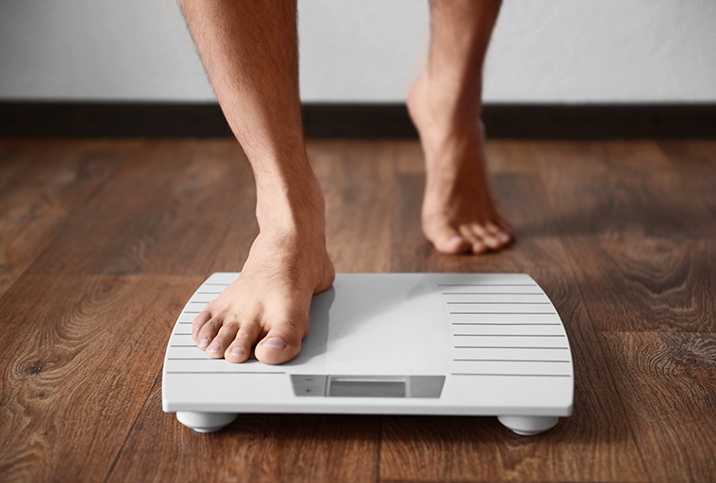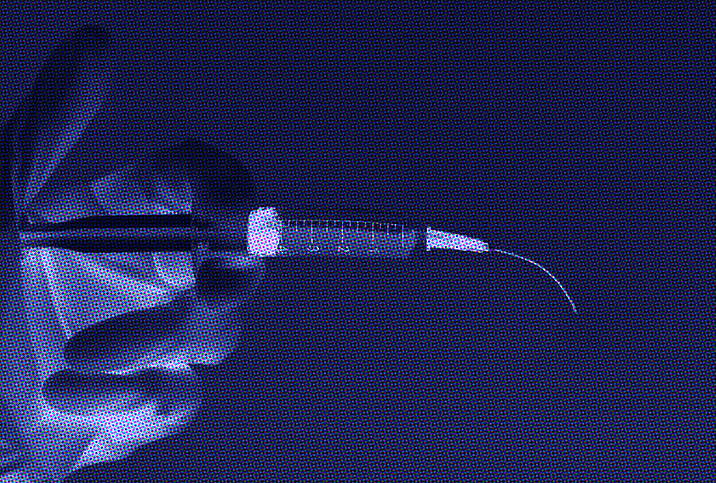How Weight Loss Can Treat Your Diabetes and ED

The more you look into erectile dysfunction (ED), the more you discover a matrix of interlocking physical ailments and psychological factors contributing to it. These include heart disease, high blood pressure, high cholesterol, sleep disorders, low testosterone, depression, anxiety and stress, among others.
When you consider how common these conditions are in this modern, fast-paced world, it should perhaps come as no surprise that some 30 million American men are reported to suffer from erectile dysfunction.
Another pair of common conditions in the modern world is obesity and diabetes—both of which are also known contributors to ED.
And while correlation doesn't prove causation, it turns out there is a strong link between obesity, diabetes and erectile dysfunction. Here's how losing some excess pounds can reduce your blood sugar and also help you achieve more robust erections.
Giddy Urologist Dr. Edwin Morales explains the connection between diabetes and erectile dysfunction in the ED Guide video series. Click here to watch the video.
Obesity and other ED factors
The prevalence of obesity in American adults has reached an incredible 42 percent of the population, according to the Centers for Disease Control and Prevention (CDC).
If you're overweight—especially if you have the prominent belly fat that often haunts men in middle age—you're at risk of developing not only ED but a host of other conditions that can cause erectile dysfunction.
The good news is that dropping even a moderate amount of weight can go a long way toward reducing your risk of developing diabetes and, subsequently, your chances of experiencing ED.
One 2005 study published in the journal Canadian Family Physician explained how researchers placed a group of obese men suffering from ED on a weight-loss program. These men ate 300 fewer calories a day and increased their weekly exercise. Members of the control group weren't encouraged to exercise or change their diet.
After two years, a stunning 31 percent of the men on the exercise and diet program reported they had regained typical sexual function. Only 5 percent of the control group members said the same.
Giddy experts Dr. Bob Harding and Lahana Vigliano explain the importance of exercise and nutrition related to ED in the ED Guide video series. Click here to watch the video.
Weight loss and diabetes
Equally important, the study's authors noted the men in the weight-loss group lost an average of 33 pounds and showed reduced oxidative and inflammatory markers, as well as an improvement in other bodily functions.
Being overweight or obese can lead to conditions such as heart disease, atherosclerosis, high cholesterol and stroke. While diabetes has many contributing factors, such as genetics and family history, obesity is also closely linked.
This link was made more apparent with the results of a 2017 study published in the peer-reviewed journal The Lancet. The study placed a group of people who had been diagnosed with type 2 diabetes within the past six years on a strict diet. During this time, they did nothing further to control their diabetes.
The researchers reported the highest rate of diabetes remission was found among the group of participants who lost the most weight. At 12 months, almost half of the participants achieved remission to a nondiabetic state and were off antidiabetic drugs, according to the report.
Target your obesity
You may want to take these results with a grain of salt, given the sample size used by the Newcastle University researchers was only 300 people. To be clear, this is not meant as a recommendation to stop taking your diabetes medications and starve yourself. Nevertheless, it's an important illustration of the dramatic effects weight loss can have on diabetes.
While obesity and diabetes are both contributors to ED, attacking obesity directly can help you simultaneously wage a two-front war against both diabetes and ED.
Speak with your doctor about setting up a diet and exercise program appropriate for your physical condition, then start down the path of healthier erections and a healthier you.


















